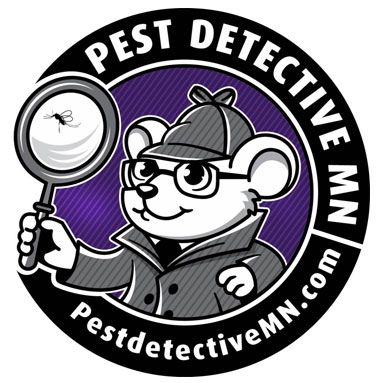September 26, 2025
Choosing the right pest control service is essential for maintaining a safe and comfortable home environment. Here you'll find a comprehensive guide to the critical questions you need to ask before hiring a local pest control business. Asking the right questions can help you ensure that you receive high-quality service that meets your specific needs. Understanding the intricacies involved in pest control can lead to more informed decisions. As such, being meticulous about your choice is not only advisable but necessary. Here are six questions you should ask your local pest control business before you hire them.
1. What Types of Pests Do You Specialize In?
Understanding Their Expertise
Knowing the types of pests a pest control business specializes in is crucial for effective control. Many pest control businesses have areas of expertise, meaning they might be more effective against certain pests compared to others. For example, some companies might specialize in spiders, while others focus on rodents or insects. Understanding their expertise can give you confidence in their ability to handle your specific type of pest issue. Make sure they have a strong track record and familiarity with the pests commonly found in your area.
Assessing Their Experience with Local Pests
Local expertise means understanding the unique pest challenges that arise in the area. According to Forbes, the Minneapolis metro area has around 380 pest control companies, indicating a robust industry presence. Companies with experience handling local pests are more likely to offer timely and effective solutions because they encounter similar situations regularly. Ask about the pests they encounter most frequently and how they handle them. This knowledge ensures that they have the right tools and strategies for the task.
Ensuring Capability with Specific Pest Issues
Some pests require specialized methods for effective eradication. When dealing with specific pest issues, it is important to confirm the company's capability in that area. For instance, some pests like bedbugs and termites demand specific approaches due to their resilience and nesting behaviors. Ask for details about their approach to handling your identified pest problem. This guarantees that you are partnering with a company that possesses the necessary skills and equipment.
2. What Pest Control Methods Do You Use?
Chemical-Based Solutions
Many companies rely on chemical-based solutions due to their immediate effectiveness. Chemical treatments are popular for their ability to swiftly eliminate pests. However, the safety and environmental impact of these chemicals should be a consideration. It’s essential to ask about the specific chemicals used and their potential risks to humans and pets. Professional companies should provide you with detailed information about these treatments.
Non-Chemical Alternatives
As concerns about safety and environmental impact grow, many companies now offer non-chemical alternatives. These methods can include traps, physical barriers, and heat treatments. While generally safer, it’s crucial to assess their effectiveness compared to chemical methods. Discuss how these alternatives are employed and their success rates in pest eradication. This can be particularly important for homes with children, pets, or individuals with allergies.
Eco-Friendly and Organic Options
Eco-friendly and organic options are increasingly popular among environmentally conscious consumers. These solutions often use natural ingredients and methods to deter pests without harmful side effects. Ask the company about the green products they use and their efficacy. Companies offering these options should adhere to strict environmental standards. Supporting businesses that prioritize sustainability is a decision that benefits both your home and the environment.
3. Are Your Technicians Licensed?
Importance of Licensed Technicians
Licensed technicians undergo rigorous training and adhere to industry standards. This ensures they are equipped with the latest knowledge and skills required to handle various pest situations. Licensing also involves regular updates on new pest control techniques and regulations. It’s important to request verification of their licensing to avoid substandard service. Trust in a licensed professional is fundamental for peace of mind.
Training and Certification Programs
Ongoing training ensures technicians are current with the best practices and safety protocols. Certification from reputable organizations indicates a commitment to excellence. It's beneficial to inquire about the specific training and certification programs the technicians undergo. A company that invests in continuous education is likely to provide superior service. This training helps in adapting to new pest challenges and innovative treatment solutions.
4. What's Your Pricing Structure?
Understanding Pricing Models
The pricing model of a pest control business can vary, impacting your budget planning. Some companies might offer package deals, while others charge based on the type and number of pests. Understanding how pricing is determined can prevent unexpected costs. Ask for a breakdown of pricing to discern the best value for your money. Transparency in pricing reflects the company’s honesty and reliability.
Getting a Detailed Estimate
Requesting a detailed estimate is essential for financial planning and service comparison. A thorough estimate should include labor, materials, and any follow-up treatments. It's wise to compare estimates from multiple companies to gauge competitive pricing. Beware of offers that seem too good to be true, as they may include hidden costs. A reputable company should willingly provide a comprehensive estimate free of charge.
Hidden Fees and Additional Charges
Hidden fees can significantly alter the final cost of pest control services. Discuss any potential additional charges that might be applicable, such as emergency visits or specialty treatments. A trustworthy company should clarify all possible costs upfront. This conversation can prevent misunderstandings and help you remain within budget. Transparent communication about fees is a hallmark of reputable service providers.
5. Do You Offer Guarantees on Your Work?
Types of Guarantees Offered
A guarantee can bolster confidence in the service provided by the pest control business. Companies might offer guarantees that include free re-treatment if pests return within a certain timeframe. Understanding the nature of these guarantees can help align expectations. Discuss the guarantees with the provider to ensure they are clearly defined and reasonable. Guarantees signify the company’s commitment to effective pest control.
Procedures for Re-treatment if Issues Persist
If pest issues recur, knowing the company's re-treatment procedures is crucial. Reliable companies should offer follow-up services at no additional cost within a warranty period. Understanding these procedures and timelines ensures consistent pest management. Clear communication about follow-up services indicates thoroughness in addressing client service needs. This aspect of service builds trust and reinforces long-term client relationships.
6. Can You Provide References or Customer Testimonials?
Importance of Customer Reviews
Customer reviews offer valuable insights into the reliability and effectiveness of pest control services. They provide first-hand accounts of customer experiences and satisfaction levels. Reviews can highlight strengths and potential weaknesses of a service provider. Exploring a company’s reputation through reviews helps in making a sound decision. A strong presence of positive reviews often correlates with quality service delivery.
Interpreting Feedback and Success Stories
Reading feedback helps to understand how the company handled different pest situations. Success stories frequently mentioned in testimonials suggest consistent service quality. Analyze both positive and negative reviews for a balanced perspective. Pay attention to how the company responds to criticisms, as it reflects their dedication to customer satisfaction. Real-life experiences shared by customers can be pivotal in your selection process.
Spotting Red Flags in References
While evaluating testimonials, it's essential to identify any red flags. Complaints about recurring pest problems or poor customer service should be taken seriously. Repeated negative feedback can indicate systemic issues within the firm. Verify the authenticity of references by checking third-party review sites. Identifying red flags early can prevent hiring a subpar service provider.
By asking these critical questions, you can gain a comprehensive understanding of the pest control services offered by your local business. This due diligence ensures you select a reliable, effective, and trustworthy partner in managing your pest concerns. Remember, being informed not only helps protect your home but also guarantees the investment you are making in such essential services. Choosing the right pest control business with this knowledge can result in considerable peace of mind. Ultimately, this approach supports creating a safer, more comfortable living environment, so call Pest Detective MN today to learn more.

